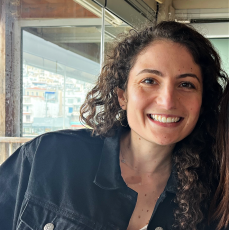Cow mortality is impacting the dowry tradition of pastoralist communities, including the IlChamus and Pokot. As you may know, dowry refers to the number of cattle that a groom must pay the family of his bride in order to marry her. In pastoralist communities, it makes sense that cows are involved in marriage, as marriage is one of the most important markers in their lives. After all, this is a culture where cows are not only a life source but also a symbol of social and financial capital.
As described in my previous blogs, cows are increasingly dying at a higher rate and at a younger age. This means that grooms have fewer cattle to offer father-in-laws. In Pokot culture, dowry is approximately 15 cows, 60 goats, and 4 camels. Due to the shortage of cattle, it has become normal for grooms to pay over time, after the marriage has taken place. For example, if a groom can pay 10 cows “up front,” then he’ll be 5 cows in debt.
On the one hand, this change indicates that these communities are gradually moving away from the sexist practice of dowry; hopefully, this will give women the leeway to be seen as more than just a prize for cattle. (Note that this is my Western perspective of dowry. However, CPI Director Hilary—who grew up in a pastoralist tribe—informed me that dowry is not internally seen as sexist, rather a custom in an overall sexist society). On the other hand, will dowry take on a new form? Considering this transition period, is this a time for organizations (such as CPI) to intervene and ask them to consider transforming this symbol of marriage?
Posted By Olivia Landau
Posted Jul 23rd, 2024



2 Comments
Iain Guest
July 29, 2024
Another very interesting insight into the way pastoralist customs are changing. You don’t come out and specifically blame drought for the cattle sickness and deaths, in this or previous blogs. So are you convinced? As for the dowry custom, I’d agree with Hilary! Your tirade about this “sexist” tradition needs a much fuller explanation! The Global South is awash with traditions that infuriate Western advocates. Certainly many of them are deeply harmful to women, and also abusive. But the dowry would seem to be low on the list, compared with female cutting etc. Don’t many societies offer gifts when a daughter gets married and joins a new family? Do you really think pastoralist women are no more than a “prize for cattle”? That seems demeaning to pastoralist wives and mothers and I feel you should tell us what the wives think before damning the practice our of hand. I’m not saying their answer would be definitive. For example, many women are supportive of traditional customs and practice that should end (like cutting) and it’s horrifying to hear mothers defend the cutting of their daughters. But we’re in deep waters here and need to be very careful of criticizing culture practice – let alone describing it as a violation of rights – without context and research. (As a rule of thumb I defer to our partners on such weighty matters…..!)
Olivia Landau
August 1, 2024
Hi Iain, thanks for the thorough comment. I’m glad you’re thinking about it as much as I am. From my experience thus far, it’s not a matter of being “convinced” that drought is the reason for cattle deaths. It is a very real factor, but not the only one- which I explain in my previous blogs. Also, it’s so interesting to dive into cultural traditions like dowry. As I mention, my opinion is my own. I obviously don’t have the same upbringing as the Pokot, and I certainly don’t claim to have the context that local NGO’s or the community has. But, this is my opinion. I also disagree with the idea of ranking of which practice are more sexist than others.